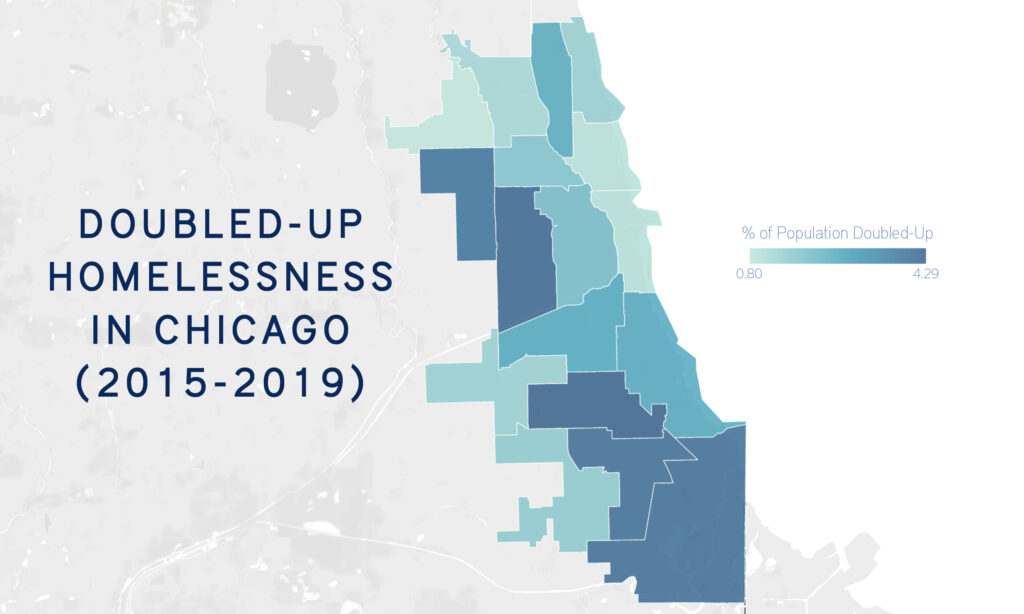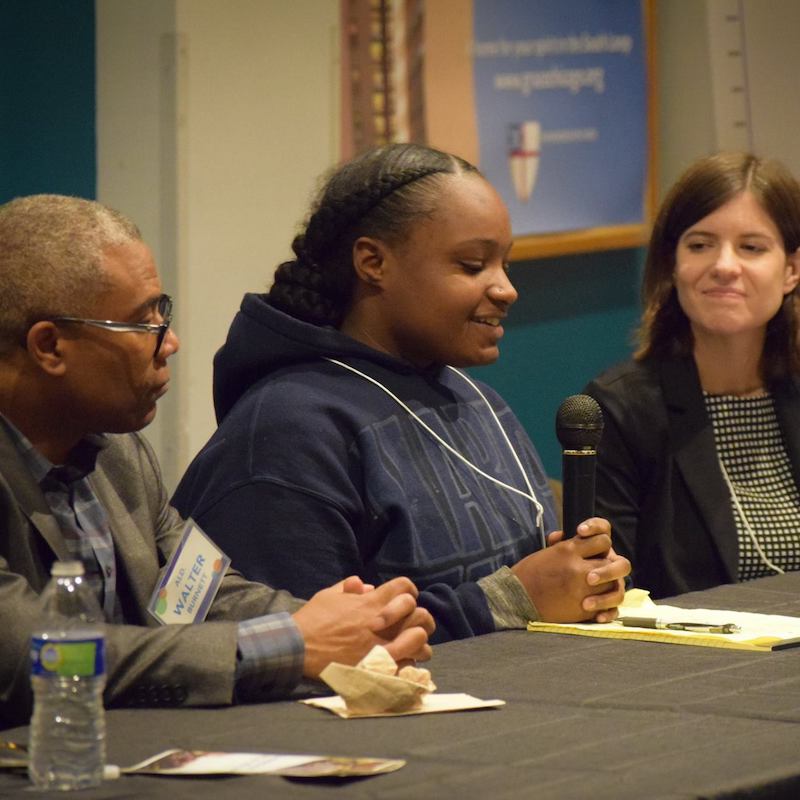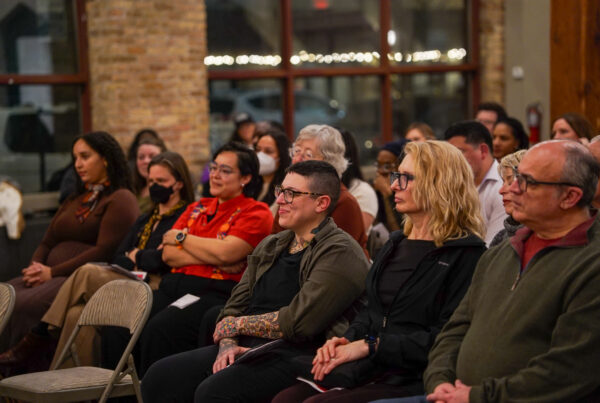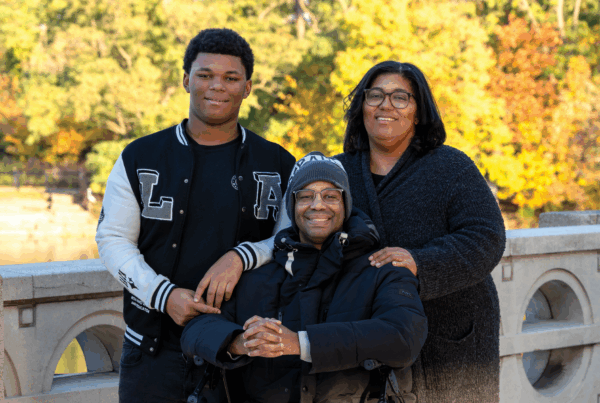A new report from Chicago Coalition for the Homeless (CCH) shows a decrease in homelessness prior to the COVID–19 outbreak, per an annual analysis that relies on the most recent U.S. Census data. However, it is unlikely that the decrease describes people exiting homelessness by connecting to housing in Chicago. Findings suggest it may be more likely that people experiencing homelessness and poverty are leaving Chicago altogether.
An estimated 58,273 people were experiencing homelessness in Chicago, IL in 2019, immediately prior to the COVID–19 outbreak, per an analysis by CCH using data from the Chicago Homeless Management Information System and the U.S. Census American Community Survey. This represents a 16% decrease of the same population in the prior year.
This reflects an overall trend of people living in poverty leaving Chicago—particularly Black and Latiné Chicagoans. Between 2015 and 2019, the Black/African American population living in poverty in Chicago decreased by 12.8% (or around 71,000 people). For Hispanic/Latiné Chicagoans living in poverty, the population decreased by 28.5% (or around 71,800 people).
The decrease in homelessness from year-to-year was almost exclusively among people experiencing homelessness by temporarily staying with others. Since 2015, the count of people that access homeless services throughout the course of each year has remained between 21,919 and 23,808 people.
Most of Chicago’s permanent housing resources for those experiencing homelessness do not include those temporarily staying with others in their eligibility criteria. Therefore, many households move out of Chicago where market rent is more affordable.
“I have been homeless my whole life, and I would still be homeless if I didn’t move to Madison,” Avion Smith said.
Smith, 20, experienced homelessness with her five siblings. They moved often between unstable living situations—couch-surfing with relatives and staying at shelters when beds were available. A recent graduate of Chicago Public Schools, Smith could not find a job to afford housing on her own. In June, she signed a lease for the first time for an apartment of her own in Madison, WI.
Prior to the COVID–19 pandemic, an estimated 12,599 Chicagoans age 18-24 were in the same situation as Smith, living doubled-up in an overcrowded household.
People live doubled up due to the loss of their own housing—which is the most common form of homelessness among families. During the 2019-20 school year, only 11% of students experiencing homelessness in Chicago were staying in a shelter. Most families experiencing homelessness were moving frequently between motels, cars, trains, and doubling up.

The COVID–19 pandemic is pushing many Chicagoans into homelessness, but just how many is still unknown. While this report shows declining numbers of people experiencing homelessness, it is important to note that all the findings are based on 2019 data, collected prior to the COVID-19 outbreak.
The economic impact of COVID–19 has pushed many renters into housing instability and Chicago will face a massive backlog of eviction filings when the Illinois eviction moratorium ends at the end of August. Lawyers’ Committee for Better Housing estimated 21,000 Chicago households were at risk of eviction at the beginning of this year.1 In Illinois, as many as 542,000 renter households could be at risk of eviction.2
Many more households will soon face homelessness. Black and Hispanic/Latiné households are experiencing a disparate impact. In Chicago, 69% of Black households and 63% of Hispanic/Latiné households reported serious financial problems during the COVID–19 pandemic. Only 33% of white households reported similar concerns.3
Too little affordable housing, insufficient living-wage work, limited access to medical care, and domestic violence are some of the reasons people face homelessness and, due to the limited affordable housing stock in the city, only a fraction of those experiencing homelessness are able to access shelter and housing.
Unless more housing solutions are created, many more Chicagoans may soon be experiencing homelessness. Since 2018, Chicago Coalition for the Homeless has supported the Bring Chicago Home campaign, a policy initiative to create dedicated revenue to fund housing for Chicagoans experiencing homelessness.
Learn more about Bring Chicago Home and get involved here.
- Peter Rosenblatt, Randall Leurquin, Mark Swartz, and Gina Spitz, Eviction Filings, Unemployment, and the Impact of COVID–19, Lawyers’ Committee for Better Housing (2020).
- Katherine Lucas Mckay, Zach Neumann, and Sam Gilman, 20 Million Renters Are at Risk of Eviction; Policymakers Must Act Now to Mitigate Widespread Hardship, Aspen Institute (2020).
- The Impact of Coronavirus on Households in Major U.S. Cities, National Public Radio, Robert Wood Johnson Foundation, Harvard T.H. Chan School of Public Health (2020).







